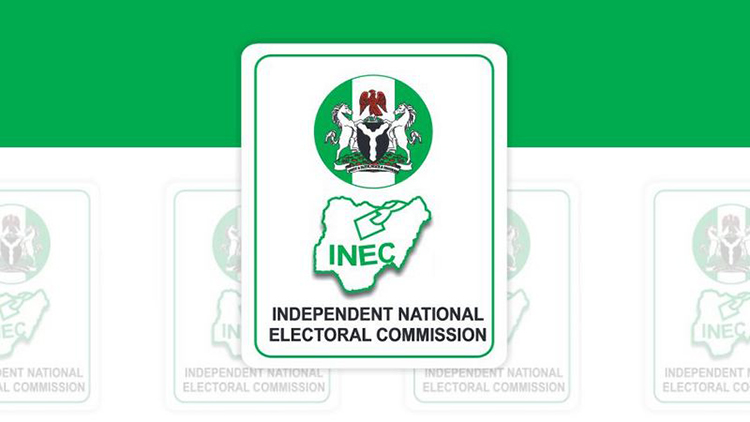Continuous Voter Registration (CVR) is an exercise meant for the registration of citizens who turned 18 years of age after the last registration exercise; or those who for one reason or another could not register in the previous exercises.
The 2010 Electoral Act (as amended) mandates the Commission to carry out CVR nationwide and to make available to every political party within 60 days. After each year, the names of the addresses of each person registered during that year.
In pursuance of this requirement, the Commission has developed the modality for the conduct of the Continuous Voter Registration (CVR) exercise nationwide.
The date for the commencement for the CVR exercise is Thursday, 27th April, 2017 at the INEC Local Government offices nationwide and remains continuous all year round.
CVR CENTRES: The Continuous Voter Registration shall be carried out in the Local Government Area offices or at such other locations within the Local Government Areas as may be designated by the Commission. The list of such centres for the CVR Exercise shall be publicized in the Local Government Areas.
HOURS OF CVR: The Continuous Voter Registration exercise will take place at the INEC Local Government offices and designated centres between the hours of 9.00am and 3.00pm daily, Mondays to Fridays, excluding public holidays.
DISPLAY OF PRELIMINARY REGISTER OF VOTERS (PRV): The Preliminary Register of Voters (PRV) shall be displayed for public scrutiny at registration Centres at the end of every quarter before printing of PVCs. The Registration Area Officers (RAOs) will print the list of registered voters for the quarter and display same at the Registration Centres for 7 days. The Register shall be clearly marked Preliminary Register of Voters.
The Commission has approved the redistribution of equipment for smooth kick off of the CVR Exercise and on the first day of the exercise, the Hon Chairman will
flag-off the exercise in the FCT while the National Commissioner will flag-off the exercise at their various zones.
The main activities for the Nationwide CVR are:
- Fresh Registration
- Transfer of Voters
- Distribution of Permanent Voters Card (PVCs)

ELIGIBILITY FOR CVR
To be Eligible for CVR, a person:
- Must be a citizen of Nigeria
- Must have attained the age of 18 years, on or before the registration day.
- Is above 18 years and could not register in any of the previous registration exercise.
- Is resident, works in, or originate from the LGA/Area Council or RA/Ward
covered by the Registration Area Centre.
- Not subject to any legal incapacity to vote under any law, rules or regulations
in force in Nigeria
- Must present him/her self to the CVR officers for registration and is able to provide proof of identity, age and nationality, if requested;
- Has registered before but his/her name/photograph/fingerprints were not captured; such a person must provide his/her Temporary Voters Card (TVC)
- Has PVC or TVC but names not on Register of Voters.

CVR GUIDING PRINCIPLES
The registration process is based on the following:
CVR is done in person and not by proxy: Anyone who wishes to register must appear in person at the CVR Centre of registration. There is no registration by proxy.
Multiple registrations is not allowed: A Voter can only register in one registration Centre, if the voter resides in more than one constituency, he/she must choose only one location to register to avoid double registration, which is an offence punishable by law.
Registration is a pre-requisite for voting in elections: Registration is a pre-requisite for exercising the right to vote. Those who don’t have PVCs and whose names are not in the Register of Voters will not be allowed to vote on the Election Day.
CVR is inclusive: Voting is a constitutional right for all eligible citizens. The Register of Voters must include as many eligible citizens as possible and registration centres must be accessible to all qualified persons.
Registration is conducted in the INEC Local Government Offices or in public in order to be accessible to accredited National and International Observers, Party Agents as well as representatives of Media Organizations
There are INEC officers who undertake the supervision of the CVR exercise. They include:
- Resident Electoral Commissioner (REC);
- Administrative Secretary (AS);
- Electoral Officers (EO);
- Assistant Electoral Officer (AEO);
- Registration Area Officer I (RAO I);
- Registration Area Officer II (RAO II);
- Registration Area III (RAO III);
- Registration Area Officer IV (RAO IV);
- Distribution Officer (DO);
The CVR Officials play very important role in the electoral process. The manner in which they discharge their duties will affect the confidence of the citizens in the electoral process and the electoral authority. They are expected to be courteous, polite, helpful at all times, treat all persons equally and with respect. All their actions and activities should be characterized by the highest professional standards including:
- Integrity
- Impartiality
- Transparency
- Fairness
- Professionalism
- Gender sensitivity
- Priority and support to vulnerable Groups including the aged, infirm, pregnant women and nursing mothers.
Temporary Voters Card (TVCs) will be issued to registrants at the point of registration, while the PVCs of those registered in Quarter 1 (Q1) should be ready for collection in Quarter 3 (Q3), and Quarter 2 (Q2) will be ready in Quarter 4 (Q4) etc.
The last week of each quarter will be for display, hearing the Claims and Objections and housekeeping (Data backup, Consolidation, Reporting etc).
The Preliminary Register of Voters (PRV) shall be displayed for scrutiny at Registration centres at the end of every quarter before printing of PVCs. The RAOs will print the list of registered voters for the quarter and display same at Registration Centres for 7 days. The Register shall be clearly marked Preliminary Register of Voters.

TRANSFER OF VOTERS
Every Nigerian has the right to live in any part of the Country. An important part of Voter Registration is that an eligible person is advised to register at the centre nearest to his/her residence. This is to make it easy for the voter to access the Polling Unit (PU) and vote on Election Day.
Meanwhile a person who has relocated to another place outside the unit in which he/she registered cannot vote in his/her new location unless he/she transfers his/her registration.



